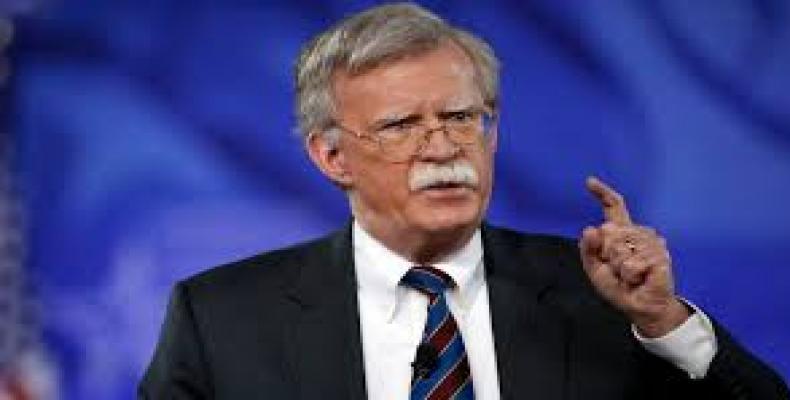Washington, August 1 (RHC)-- The administration of U.S. President Donald Trump is reportedly seeking up to a five-fold increase in Japan’s spending on American military forces deployed to the Asian country.
In talks with Japanese Foreign Minister Taro Kono and Shotaro Yachi, the head of the National Security Council secretariat, last week U.S. National Security Adviser John Bolton raised the possibility of the fivefold increase in Japan’s spending on U.S. military, the Japanese newspaper Asahi Shimbun reported, quoting a U.S. government source.
Donald Trump has long complained that Japan was not contributing enough to its own defense and that the American military was shouldering an unfair burden. He has repeatedly criticized a decades-old military treaty with Japan as “unfair.” Last month he told Japanese Prime Minister Shinzo Abe that the deal needs to be revised.
“I said: Look, if someone attacks Japan, we go after them and we are in a battle, full force, in effect," Trump said. "If somebody should attack the United States, they don't have to do that. That's unfair.”
The treaty, signed after Japan's surrender in World War II, commits the United States to defend Japan. Tokyo, in return, provides military bases that Washington uses to project power deep into Asia.
Experts say a possible end to the treaty is widely seen as raising the risk of forcing Washington to withdraw a major portion of its military forces from Asia. It has stationed some 50,000 troops only in Japan.
An expert on U.S. politics in Tokyo, Yasushi Watanabe, said Trump “has long believed America has been forced to shoulder excessive burdens because of some frameworks of international relations.” Under an agreement reached with the United States and Japan under Trump’s predecessor, Barack Obama, Tokyo will pay a total of $8.7 billion over the five-year period from fiscal 2016 to fiscal 2020.


